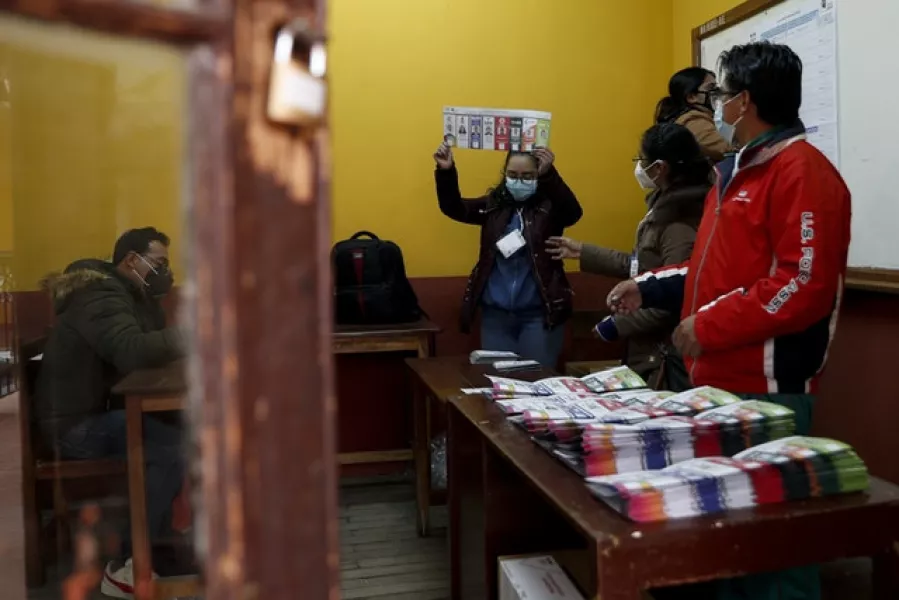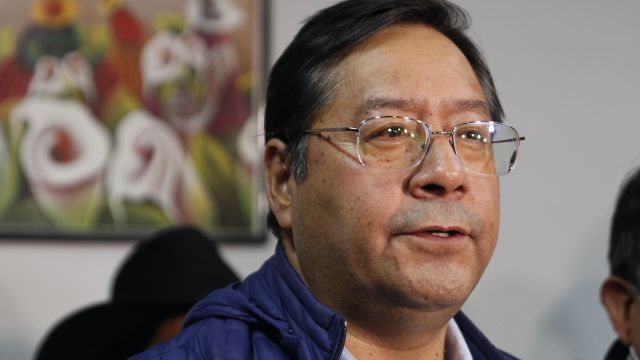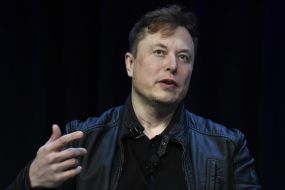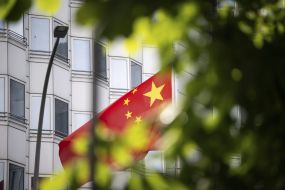More than nine hours after polls closed, barely 6% of all ballot boxes had been counted and they showed Mr Morales’ handpicked successor, Luis Arce, trailing conservative rival Carlos Mesa.
However, with a private quick count of sampled polling stations favouring Mr Arce by a wide margin, even interim president Jeanine Anez – an arch-rival of Mr Morales – recognised that the socialist movement looked set to return to power in what looked to be a major jolt to South America’s beleaguered left.

“I congratulate the winners and I ask them to govern thinking in Bolivia and in our democracy,” Ms Anez said on Twitter.
Bolivians have long been accustomed to quick preliminary results in presidential elections. But after allegations of fraud and days of unrest marred last year’s ballot, newly installed electoral authorities had been appealing for patience, reminding voters that they have up to five days to declare a winner.
While voting was peaceful, the long wait on Sunday night for results fuelled speculation that something was awry.
Adding to the intrigue, the publication of two exit polls was also withheld after private pollsters said they did not trust their own survey results.
Mr Morales broke the tense silence by declaring Mr Arce the winner.
Later, two pollsters said a quick count of official tally sheets at select polling stations showed Mr Arce had garnered more than 50% of the votes, compared to 31% for former president Carlos Mesa, the top finisher of four rival candidates.
“We’ve recovered our democracy,” Mr Morales said in brief remarks from exile in Argentina. “Lucho will be our president.”

Appearing a few minutes later, Mr Arce took a less strident tone and appealed for calm, saying he would seek to form a government of national unity.
“I think the Bolivian people want to retake the path we were on,” Mr Arce declared around midnight surrounded by a small group of supporters, some of them in traditional Andean dress in honour of the country’s Indigenous roots.
The early official results favoured Mr Mesa, a former journalist and historian, with 49% compared to 33% for Mr Arce.
Prior to voting, polls showed Mr Arce ahead but lacking enough votes to avoid a November run-off, where conservative voters would have likely rallied behind Mr Mesa. To win in the first round, a candidate needs more than 50% of the vote, or 40% with a lead of at least 10 percentage points over the second-placed candidate.
Mr Arce, who oversaw a surge in growth and reduction in poverty as Mr Morales’ economy minister for more than a decade, would face an uphill battle trying to jumpstart growth this time.
The coronavirus, which led authorities to postpone Sunday’s election twice, has hit the impoverished, landlocked Bolivia harder than almost any other country on a per capita basis. Nearly 8,400 of its 11.6 million people have died of Covid-19.

Mr Arce also faces the challenge of emerging from the long shadow of his former boss, who remains polarising but whose support enabled the low-key, UK-educated economist to mount a strong campaign.
Mr Morales, who served as president from 2006 to 2019, was barred from running in Sunday’s election, even for a seat in congress, and faces prosecution on what are seen as trumped-up charges of terrorism if he returns home.
Few expect the sometimes-irascible politician to sit by idly in a future government under Mr Arce.
Bolivia, once one of the most politically volatile countries in Latin America, experienced a rare period of stability under Mr Morales, the country’s first Indigenous president.
A boyhood llama herder who became prominent leading a coca grower’s union, Mr Morales had been immensely popular while overseeing an export-led economic surge.
But support was eroding due to his reluctance to leave power, increasing authoritarian impulses and a series of corruption scandals.
He shrugged aside a public vote that had set term limits, and competed in the October 2019 presidential vote, which he claimed to have narrowly won outright.

But a lengthy pause in reporting results fed suspicions of fraud and nationwide protests followed, leading to the deaths of at least 36 people.
When police and military leaders suggested he leave, Mr Morales resigned and fled the country. He called his removal a coup and a non-elected conservative government has ruled ever since.
Sunday’s vote is an attempt to reset Bolivia’s democracy. All seats in the 136-member legislative assembly were also up for grabs and expected to echo the results of the presidential race.
In the end, Mr Arce may have benefited from overreach and a series of errors by Mr Morales’ enemies.
Ms Anez, a conservative senator, proclaimed herself interim president amid last year’s tumult and was accepted by the courts.
Her administration, despite lacking a majority in congress, set about trying to prosecute Mr Morales and key aides while undoing his policies, helping prompt more unrest and polarisation.
She dropped out at as a candidate for Sunday’s election while trailing badly in polls. That boosted Mr Mesa, who governed Bolivia following the resignation in 2003 of former president Gonzalo Sanchez de Lozada amid widespread protests.
The Trump administration, which celebrated Mr Morales’ departure as a watershed moment for democracy in Latin America, has been more cautious as the former leader’s successor surged in the polls.
A senior US state department official said that the US is ready to work with whomever Bolivians select in a free and fair vote.







